Thursday @ 7PM: Hepburn/Monroe
The Two Girls We Love to Love
by Haley Markbreiter
If we made these women into myths, they were also myths from the very start. You can see it in their names — myth seeping into poverty, fear. Marilyn was born in LA County Hospital, and her name was changed almost immediately after that — from Norma Jeane Mortenson (father: Martin Mortensen, residence "unknown") to Norma Jean Baker. Baker was Marilyn's mother's first husband. (Norma Jean Baker, mask behind the mask and also a mask). Marilyn liked to pretend that Clark Gable was her father.
The rest of her early life was sad, crazy, scary. Foster home to foster home, sexual assault. Being eight years old and getting your hair curled, putting make-up on, wanting to look like Jean Harlow. Marilyn was working at a radioplane munitions factory when she was spotted — then hired — by Blue Book modeling. A Fox exec saw a picture of her, gave her a screen test, and was bowled over. "Wow!" he said, supposedly. "It's Jean Harlow all over again. " Did they tell her? Did she know? The exec changed her name, too — to Marilyn Monroe, lucky double M.
In a similar twist, Audrey's father changed their family name from Ruston to Hepburn–Ruston, convinced that he was descended from James Hepburn, husband of Mary, Queen of Scots. Audrey grew up in Nazi–occupied Holland. She attended a small, private girl's school, and studied ballet. Her famously fail physique came from childhood malnutrition — during wartime famine, she would grind flour out of tulip bulbs. She went by Edda van Heemstra, to avoid sounding British. After the war — training as a ballerina, working as a part–time model, desperate for cash &mdas; she changed her name again, from Audrey Hepburn–Ruston to just Audrey Hepburn.
Both grew up without fathers. Both played cinematic parodies of themselves. Audrey, the rich and tender aristocrat in Roman Holiday. Marilyn, the dumb, broke, aspiring actress in Gentlemen Prefer Blondes. But here the roads differ — Roman Holiday landed Audrey a seven–film contract with Paramount, a TIME magazine cover, and, from that, her own "look" (the bangs, the pale face, elfin ears). Immediately, she was everyone's girl. From the New York Times review of Sabrina: "And, indeed, she is wonderful in it—a young lady of extraordinary range of sensitive and moving expressions within such a frail and slender frame. She is even more luminous as the daughter and pet of the servants' hall than she was as a princess last year, and no more than that can be said."
Meanwhile: despite the commercial and critical success of Gentlemen Prefer Blondes, no one really let Marilyn act. As she told the New York Times, "I want to grow and develop and play serious dramatic parts. My dramatic coach, Natasha Lytess, tells everybody that I have a great soul, but so far nobody's interested in it. " Instead, she was shuffled around from C-picture to C-picture, chronically underpaid. She finally got a good part in Wilder's The Seven Year Itch, but in the only scene we remember her by, she is standing over a subway grate, dress flying up over her white legs.
It was only after threatening to break with 20th Century Fox and starting her own production company that Marilyn landed two serious roles (in Some Like it Hot and The Misfits). She still suffered from crippling stage fright; yet, despite that, Wilder said that Monroe had a "certain indefinable magic" and "absolute genius as a comic actress. " She was working on Cukor's Something's Gotta Give when she died of a drug overdose.
Audrey went on to make hit after hit — Funny Face, Breakfast at Tiffany's — and invent the "little black dress". She became a UNICEF Goodwill ambassador. She died in Switzerland, in 1993.
2013-04-04 @ 7:00 PM
All About Eve
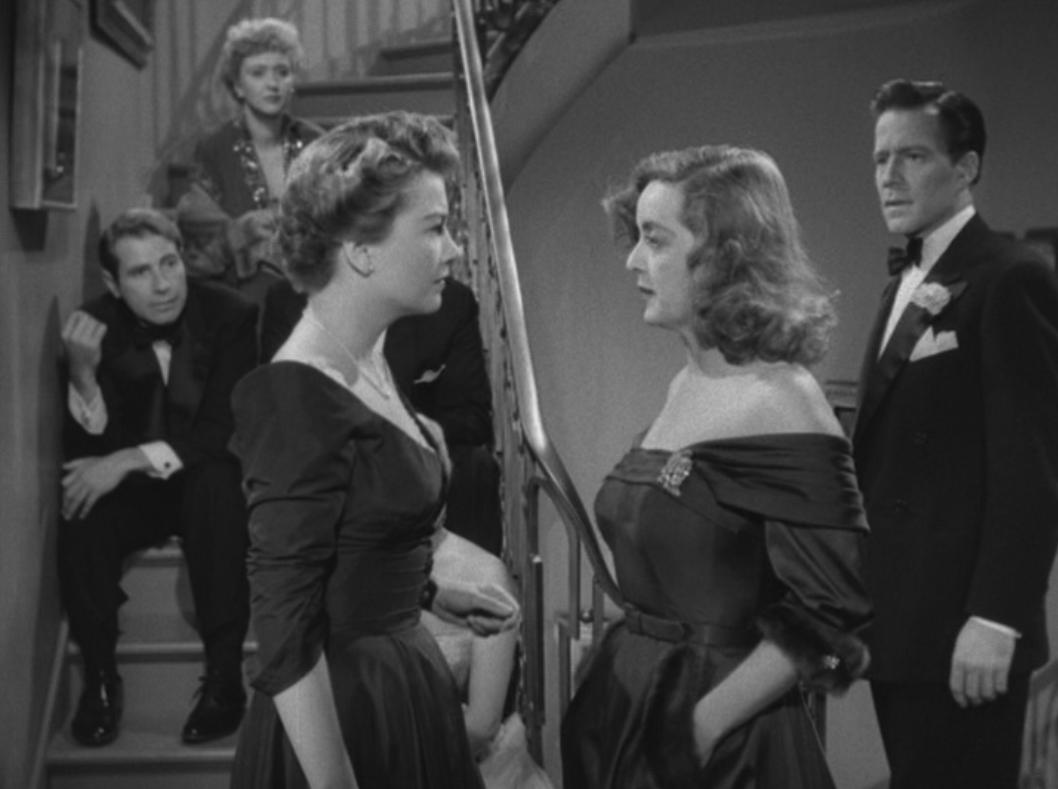
(Joseph Mankiewicz, 1950) · Fasten your seatbelts as Hollywood skewers Broadway, exposing a world of petty jealousy, sexual manipulation, backstabbing, and ageism. Bette Davis is both fierce and vulnerable as a stage star turning 40 who knows it's only a matter of time before she's supplanted by the next ingénue — in this case — the doe-eyed but scheming Ann Baxter. Monroe, onscreen for only a minute, exuded such charm that her bit part landed her a contract with 20th Century Fox.
runtime: 138 min format: 35mm
2013-04-11 @ 7:00 PM
Roman Holiday
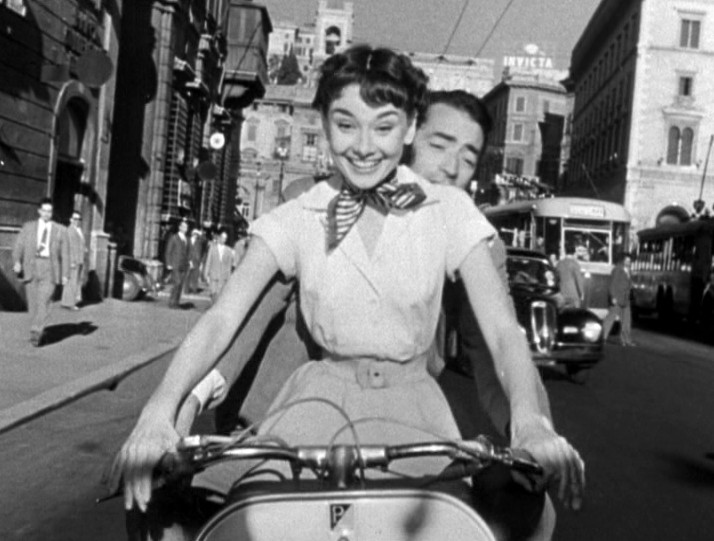
(William Wyler, 1953) · In a role which won her the Academy Award for Best Actress, Hepburn plays a sheltered princess who meets an American journalist (Gregory Peck) after she escapes her guardians to see Rome for herself. The first American picture shot entirely in Italy, Roman Holiday also won the Oscar for its screenplay, co-written by blacklisted writer Dalton Trumbo, who finally received credit, and an Oscar, for his work when the film was re-released in 2002.
runtime: 118 min format: 35mm
2013-04-18 @ 7:00 PM
Gentlemen Prefer Blondes
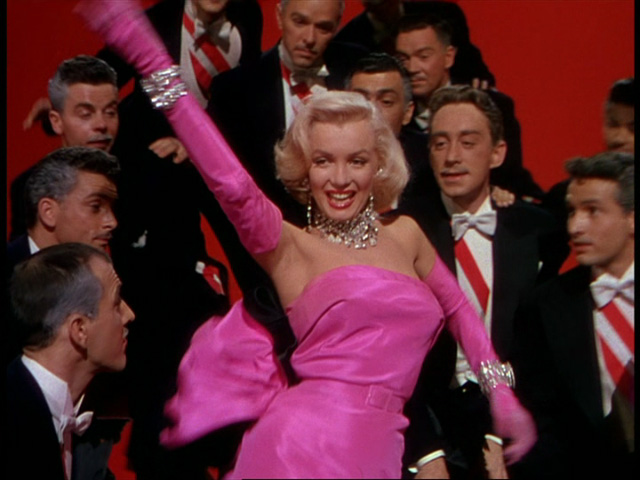
(Howard Hawks, 1953) · Two show girls, Dorothy (Jane Russell) and Lorelei (Marilyn Monroe), take a boat to Paris to play the nightclub circuit in this gaudy musical. Dorothy pines for Olympic athletes and an undercover detective, while Lorelei famously explains that "Diamonds Are A Girl's Best Friend." The film cleverly plays on the chauvinism of the '50s, and confirms the two bombshells' status as pop icons. Features Charles Coburn as an extremely lecherous old man.
runtime: 91 min format: 35mm
2013-04-25 @ 7:00 PM
Sabrina
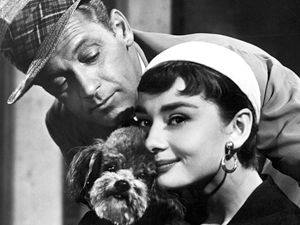
(Billy Wilder, 1954) · Hepburn's Sabrina transforms from a timid chauffeur's daughter into a worldly sophisticate in this Cinderella story of social mobility and modernity. In Wilder's last Paramount collaboration, Sabrina returns from culinary school in Paris with a Givenchy wardrobe and rose-tinted glasses in tow. She finds herself torn between the affections of her father's boss's sons: the debonair playboy David (Holden) and the gruff businessman Linus (Bogart).
runtime: 113 min format: 35mm
2013-05-02 @ 7:00 PM
The Seven Year Itch
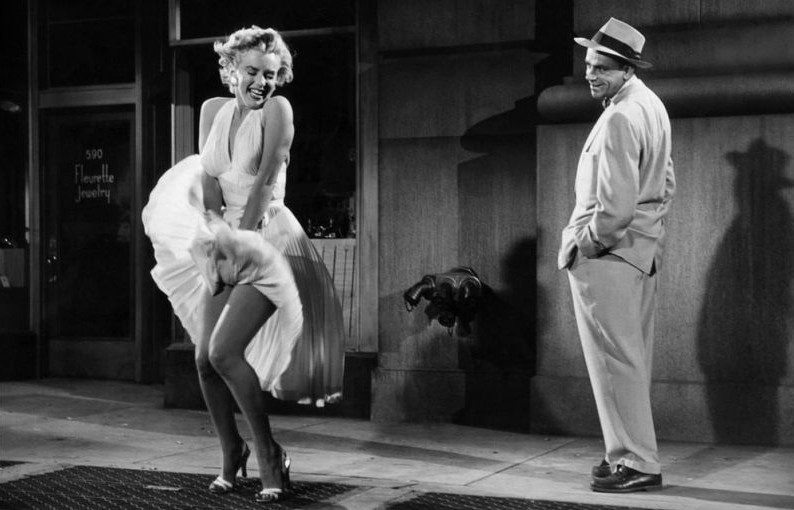
(Billy Wilder, 1955) · Richard reads that men are most likely to have affairs in their seventh year of marriage. By an astonishing coincidence, his wife is out of town, they've been married exactly seven years, and a beautiful blonde has moved into the apartment upstairs. The Hays Code ensures that any indiscretions stay within our hero's fantasies (a departure from the original play!), but be sure to see the film for the legendary Marilyn-and-the-subway-grate scene.
runtime: 105 min format: 35mm
2013-05-09 @ 7:00 PM
Funny Face
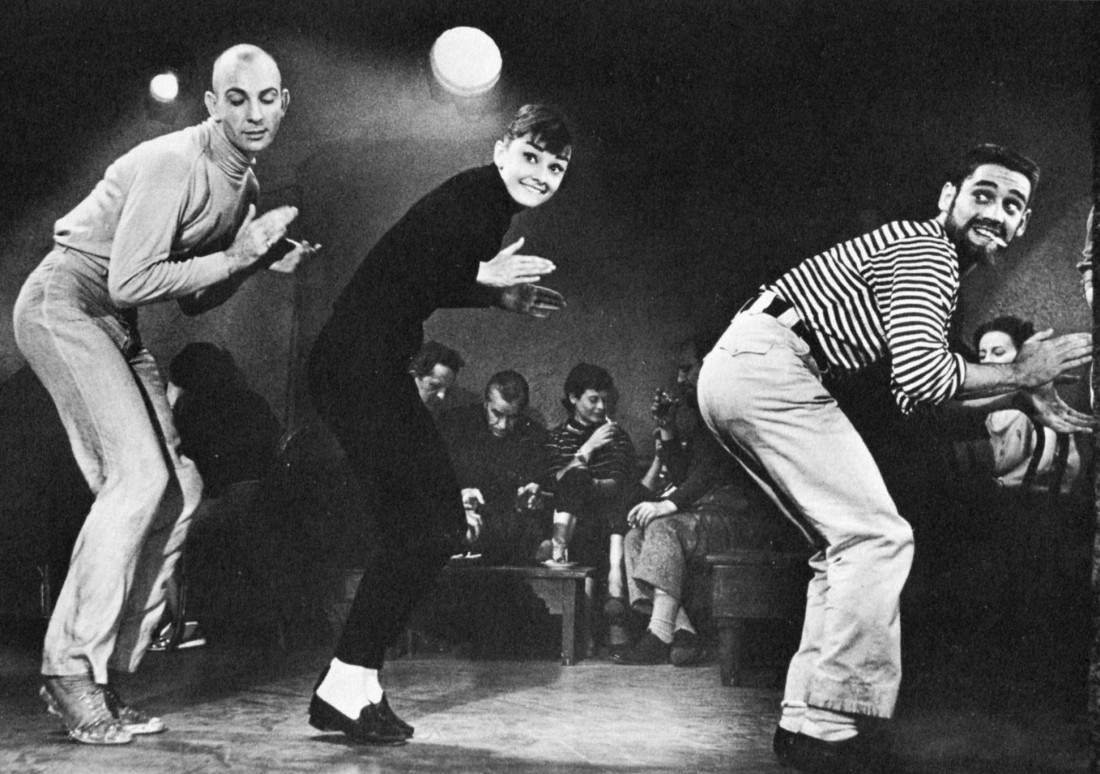
(Stanley Donen, 1957) · Is it brains, beauty, or both? When fashion photographer Dick seeks to fabricate an intellectual background for a contrastingly empty-headed model, he happens upon a bookstore in Greenwich Village and takes some shots. Later, the store is left in disarray and Dick helps clerk Jo clean it up. He then discovers a beautiful picture of Jo and hires her to be his new model. Jo begrudgingly accepts, but soon learns to love her new work--and her new employer.
runtime: 103 min format: 35mm
2013-05-16 @ 7:00 PM
Charade
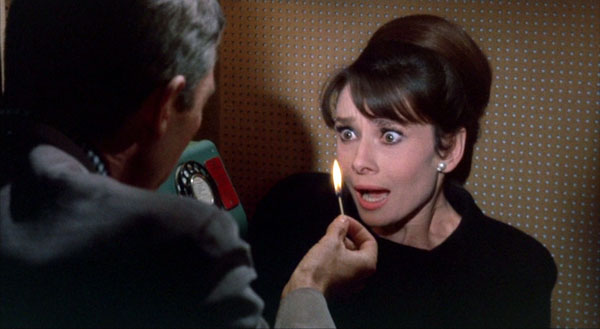
(Stanley Donen, 1963) · Charade combines thriller, screwball comedy, and whodunit elements in a film often called "the best Hitchcock movie that Hitchcock never made," Hepburn co-stars with Cary Grant as a young American woman in Paris who is pursued by three men determined to retrieve the fortune her murdered husband stole from them. In the public domain upon release due to an administrative snafu, Charade has become a classic for its quick dialog, '60s style, and Henry Mancini score.
runtime: 113 min format: 35mm
2013-05-23 @ 7:00 PM
Breakfast At Tiffany's
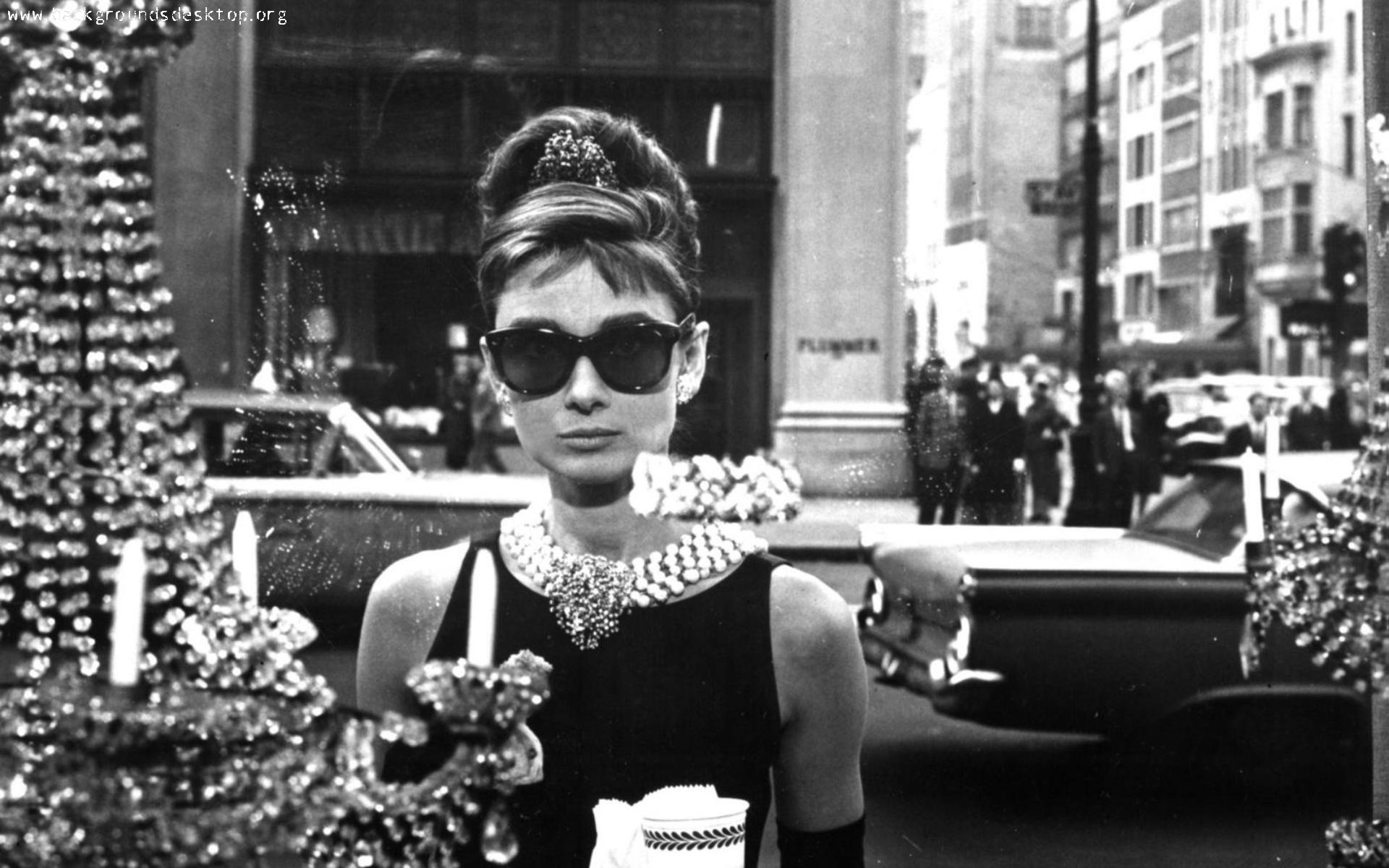
(Blake Edwards, 1961) · Holly Golightly lives by her own rules, traipsing through early 60s New York with her smitten neighbor Paul (George Peppard) in tow. Truman Capote wanted Marilyn to play the "American Geisha" from his 1958 novella. She declined, and Audrey's Golightly–diamond tiara, little black dress and a cigarette holder–became iconic. An early pairing for Edwards and composer Henry Mancini (whose "Moon River" appears throughout).
runtime: 115 min format: 35mm
2013-05-30 @ 7:00 PM
The Misfits
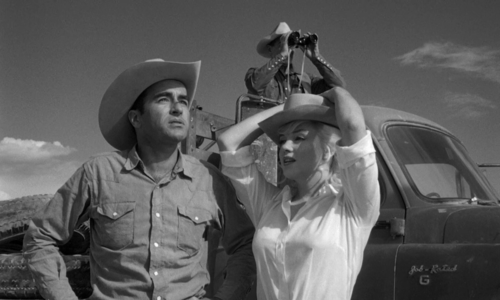
(John Huston, 1961) · John Huston's deconstruction of the mythic Old West from a script by playwright Arthur Miller. The film was written for Monroe, Miller's then-wife, who gives her final performance as Roslyn Tabor, saint of the Nevada Desert. Though a divorce, Roslyn maintains her innocence about the world and love. But when her cowboy lover (Clark Gable) gets involved with a cynical horse-stealing gang, Roslyn's idealism may destroy her second chance at love.
runtime: 124 min format: 35mm
2013-06-06 @ 7:00 PM
Wreck-It Ralph

(Rich Moore, 2012) · Have you ever wondered what kind of transformative inner journey turned Donkey Kong from villain to hero between Donkey Kong 3 and Donkey Kong Country? Well, somebody did. Described as a "Who Framed Roger Rabbit for the joystick generation," Wreck-It Ralph is a too-fun-to-hate breakneck barrage of color, noise, and nostalgia. See the bad guy be good! See his heartwarming self-discovery! See it on Harper Quad as part of Alumni Weekend!
runtime: 108 min format: 35mm



